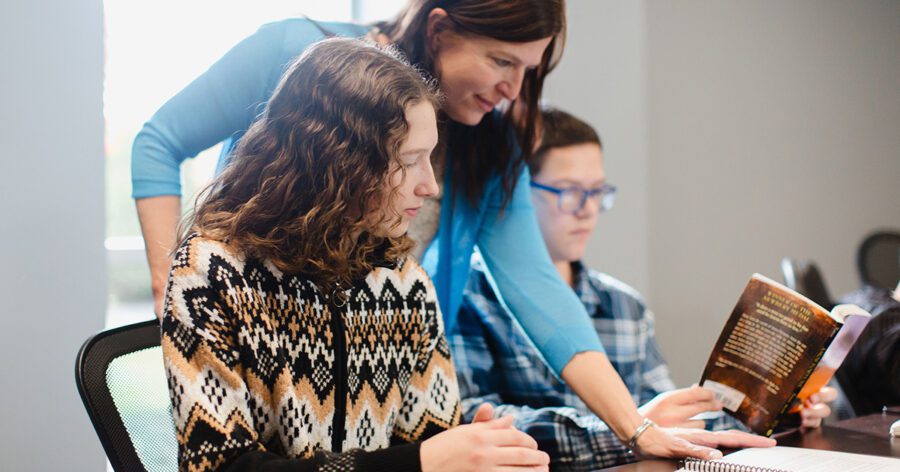As a homeschool parent, assessing your child’s understanding of literature can sometimes feel like a challenge, especially when standard comprehension questions seem disconnected and formulaic. It’s hard to tell if your child is truly engaging with the story or simply giving the answers they think you want.
In this article by Circe Institute author Buck Holler, we’ll explore a more thoughtful, step-by-step approach to help your child form their own meaningful questions about what they’ve read.
By working from your child’s perspective, you can guide them to a deeper understanding of the material, encouraging critical thinking and a more personal connection with the text. Whether you’re new to homeschooling or an experienced home educator, this assessment method can transform how you discuss literature in your homeschool.
Approaches to Literature Comprehension
The common approach to literature in many classrooms is to give the child a worksheet with a number of questions about the text. But whose questions are they?
Giving a child a set of questions that he did not ask, nor was even thinking about, sets an unnecessarily arduous task before him and actually leads him away from contemplative reading toward cold analysis.
An alternative approach to literature is to guide the child toward asking his or her own questions before introducing questions not asked by the child.
As the parent/teacher, the point is to work from the perspective level of your child. By setting questions in front of your child before the child has even spoken, you gain no idea what your child gleaned from the story. Rather, you frustrate, discourage, and induce anxiety upon your child.
Steps to Assessing Literature Understanding
Once you draw out the perceptions your child acquired from the story, you can assess and ask the appropriate questions that will link your child’s understanding to the story.
- Always begin by asking your child to name two or three characters. He will always select (1) the characters that he remembers and (2) the characters that he is most interested in.
- Second, have your child list three to five things each actor/character did.
- Third, pick one actor and select one action done by that actor.
- Fourth, frame the actor and the action as a question beginning with the word “should.”
Character Development and Self-Assessment
This question is crucial because it marks the difference between looking for an answer in the unfamiliar territory of the story as opposed to drawing an answer from the child’s own moral character. Here you are able to assess your child’s moral development from the answer they give to this simple question.
How to Ask Literature Questions:
Sample Literature Assessment
For example, we can look at Charlotte’s Web:
Name three characters from Charlotte’s Web.
- Wilbur
- Charlotte
- Templeton
List three things each character did.
- Wilbur: talked, cried, asked for help
- Charlotte: talked, spun a web, helped Wilbur
- Templeton: ate, brought Charlotte words, complained
Pick one character.
- Charlotte
Pick one action.
- Helped Wilbur
Now, should Charlotte have helped Wilbur?
FAQs
Why do we need to assess literature?
When students analyze literature, they can see beyond the story and see the greater purpose of understanding human nature, universal Truth, and one’s own life. Parents can assess a student’s understanding of literature by engaging in meaningful conversation with questions that encourage students to draw from their own morality in relation to the story and characters.
What are examples of literature used in Classical Conversations?
Classical Conversations uses a variety of ancient epics, modern classics, and Newberry award-winning works to provide students with insightful moral training and character development conversations. From fantasy, such as C.S. Lewis’s The Lion, the Witch, and the Wardrobe, to the Greek epics of The Iliad and The Odyssey, students get a comprehensive experience with classic, quality literature.
Literature Assessment Made Simple
Assessing your child’s understanding of literature can be a blessing of beautiful conversation that leads to impactful connections between your student and the text, yourself, your family, and your community.
By encouraging your child to ask their own questions and reflect on the characters and actions they found most memorable, you create an opportunity for deeper engagement. This approach, rooted in the child’s perspective, not only promotes critical thinking but also fosters a more personal and meaningful connection to the text.
Find out more about how literature fits into all the Classical Conversations programs and learn more about our classical, Christ-centered communities.




